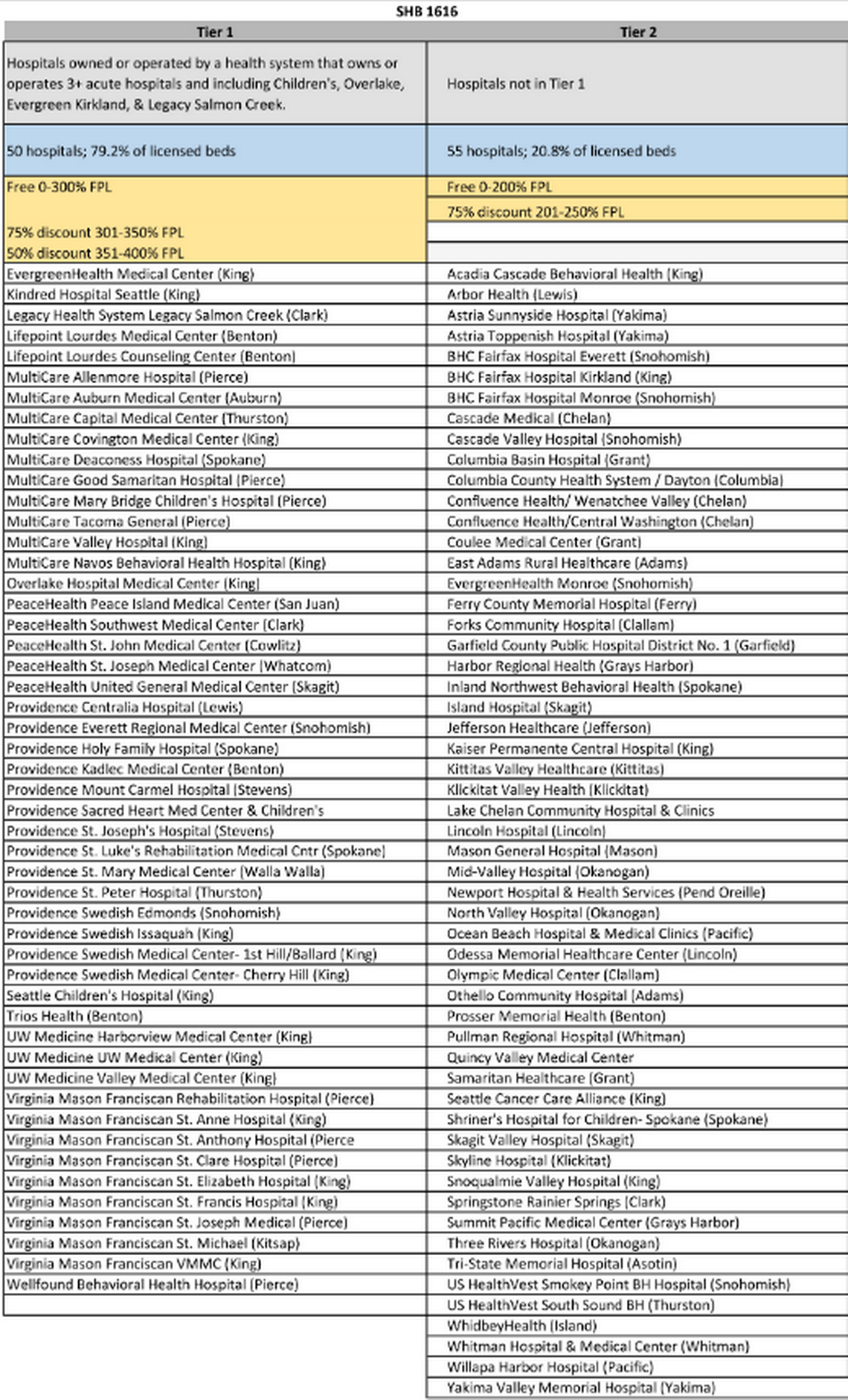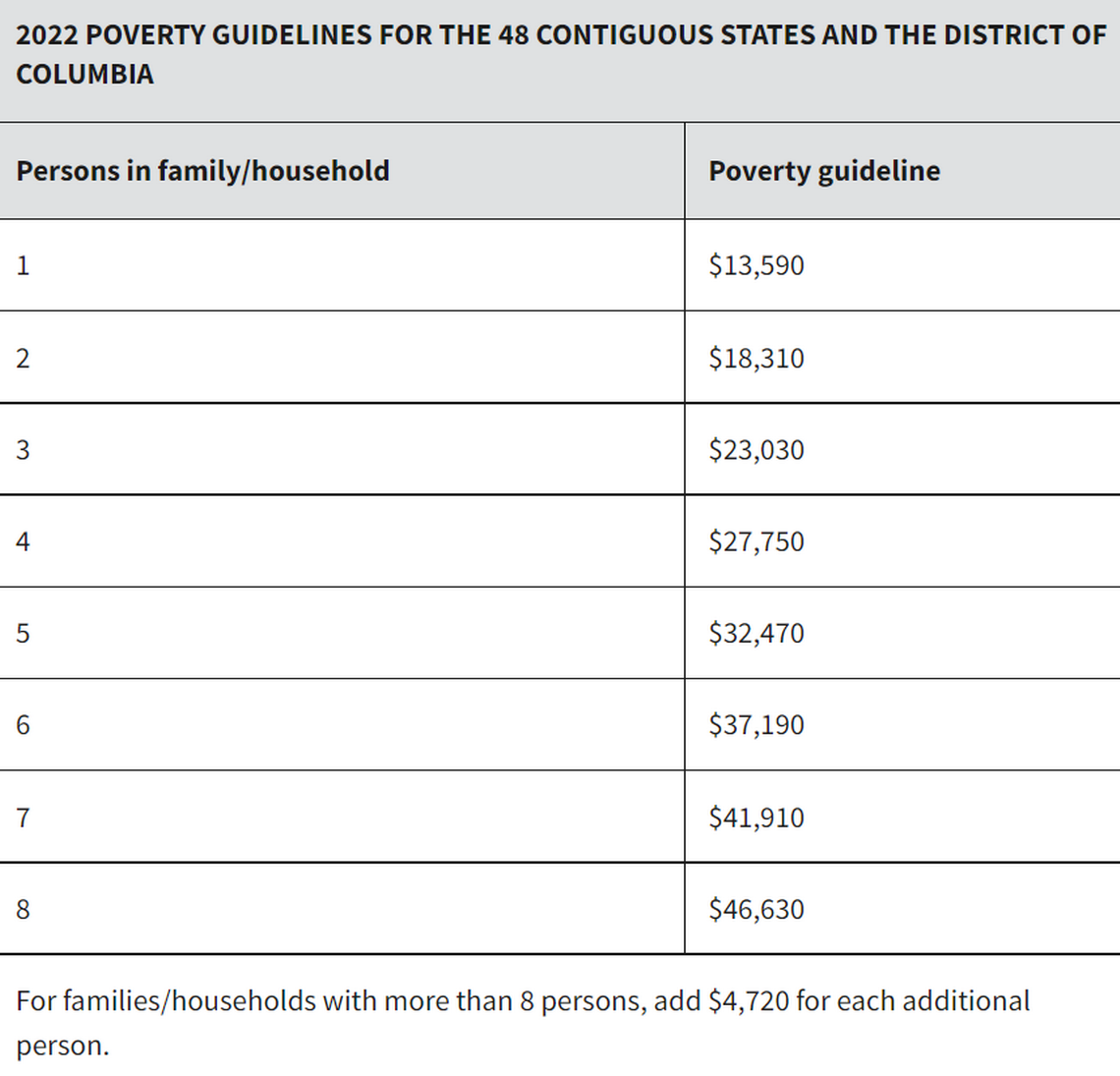50% of WA residents eligible for free or lower hospital bills. Here’s what you should know
About half the residents of Washington state now qualify for free or discounted hospital care under a new law.
But the size of the discount could depend on the hospital providing the care.
Throughout Washington state, some hospitals will be required to offer free care to more people or steeper discounts than other hospitals, which are typically those in smaller communities.
The new law took effect July 1, making more than 1 million additional state residents eligible for a charity care discount and about 1 million who already qualified for a charity care discount eligible for free hospital care for a total of about 4 million people.
“Too many Washingtonians are just one hospital bill away from financial crisis,” said Washington Attorney General Bob Ferguson, in a statement. He requested the legislation.
About two-thirds of the people nationwide who file for bankruptcy cite medical issues as a key contributor, and more than half of collection items on credit reports are for medical debts, according to Ferguson’s staff.
The problem is worse for Black and Latino households, which are disproportionately underinsured and especially vulnerable to catastrophic medical expenses.
Hospital rules
Eligibility for free or discounted care in Washington depends on two factors:
Family income
Hospital ranking. Tier 1, which requires them to provide the biggest discounts, or Tier 2.
The new law requires Tier 1 hospitals — such as Kadlec Regional Medical Center in Richland — to offer free care for families making up to 300% of the federal poverty level.
A Tier 1 rating is based on what the attorney general’s office called an unofficial list that includes those that are owned or operated by a health system with three or more acute-care hospitals.

At Tier 1 hospitals a family of four with an income of up to $111,000 or a single person with an income of up to $55,800 would qualify for up to 50% off their out-of-pocket costs, according to information from the attorney general’s office.
Free care at Tier 1 hospitals would be offered to members of a family of four with an income of about $83,000 or a single person who makes up to about $40,700.
Fifty hospitals in the state, which have almost 80% of the licensed hospital medical beds and are primarily in urban areas, are Tier 1 hospitals and have the biggest discounts per patient income.
They include Deaconess Hospital and others in Eastern Washington.
Multiple Seattle-area hospitals, including Providence Swedish hospitals, Seattle Children’s hospital, Harborview Medical Center, UW Medical Center and Virginia Mason hospitals also are Tier 1.
Rules for more rural hospitals
The remaining 55 hospitals in the state are Tier 2, but still must offer free and discounted care.
They include US HealthVest South Sound BH in Thurston county, BHC Fairfax Hospital in Kirkland, Seattle Cancer Care Alliance and others.

They are required to offer free care to people making up to 200% of the poverty level, which is about $27,200 for a single person or $55,500 for a family of four.
A 75% discount is available for those making 201% to 250% of the poverty level at those hospitals and a 50% discount for those making 251% to 300% of the poverty level.
In some cases, Tier 1 and Tier 2 hospitals may also consider some of the family’s assets in figuring discount levels.
Under the previous Washington state law, full write-offs were available only for those earning up to 100% of the poverty level — about $13,600 for a single person or $27,800 for a family of four. A sliding scale of discounts was available for up to double those income levels.
At the previous level a single parent working two minimum wage jobs for 50 hours a week was not eligible for financial assistance at Washington hospitals, according to the attorney general’s office.
The new law is not expected to cause financial difficulties for hospitals, according to information from the Washington state attorney general’s office.

It says that a similar charity care law adopted by Oregon in 2019 has not caused difficulties. Like the new Washington law, the Oregon law applies only to out-of-pocket medical costs and hospitals still receive payment from the patient’s health insurance or Medicaid.
Washington hospitals are required to provide notice that charity care is available both verbally and in writing and screen patients to see if they are eligible before attempting to collect payment.
“Make sure you know what kind of assistance you qualify for, and if you aren’t getting it, contact my office,” Ferguson said.
Tips for WA hospital discounts
Ferguson’s office offered these tips to help people understand what is and is not covered by the new hospital charity care law:
▪ The new law generally includes emergency room care at a hospital plus any other scan, test or procedure done there. But it will not cover bills from doctors or other health care providers not directly employed by the hospitals, unless the hospitals require them to honor the hospital’s charity care policies.
▪ The law applies only to medical care received at a hospital and it is up to hospitals whether to extend the charity care policy to their associated clinics.
▪ Individuals do not have to be citizens of the United States to apply for charity care.
▪ People with health insurance or who have Medicaid or Medicare coverage can qualify for charity care for the portion of their hospital bill they pay out of pocket.
▪ Hospitals cannot consider the value of a home in assessing charity care eligibility. Some other assets may be considered, but most patients with incomes that qualify for charity care will not be excluded based on their assets.
